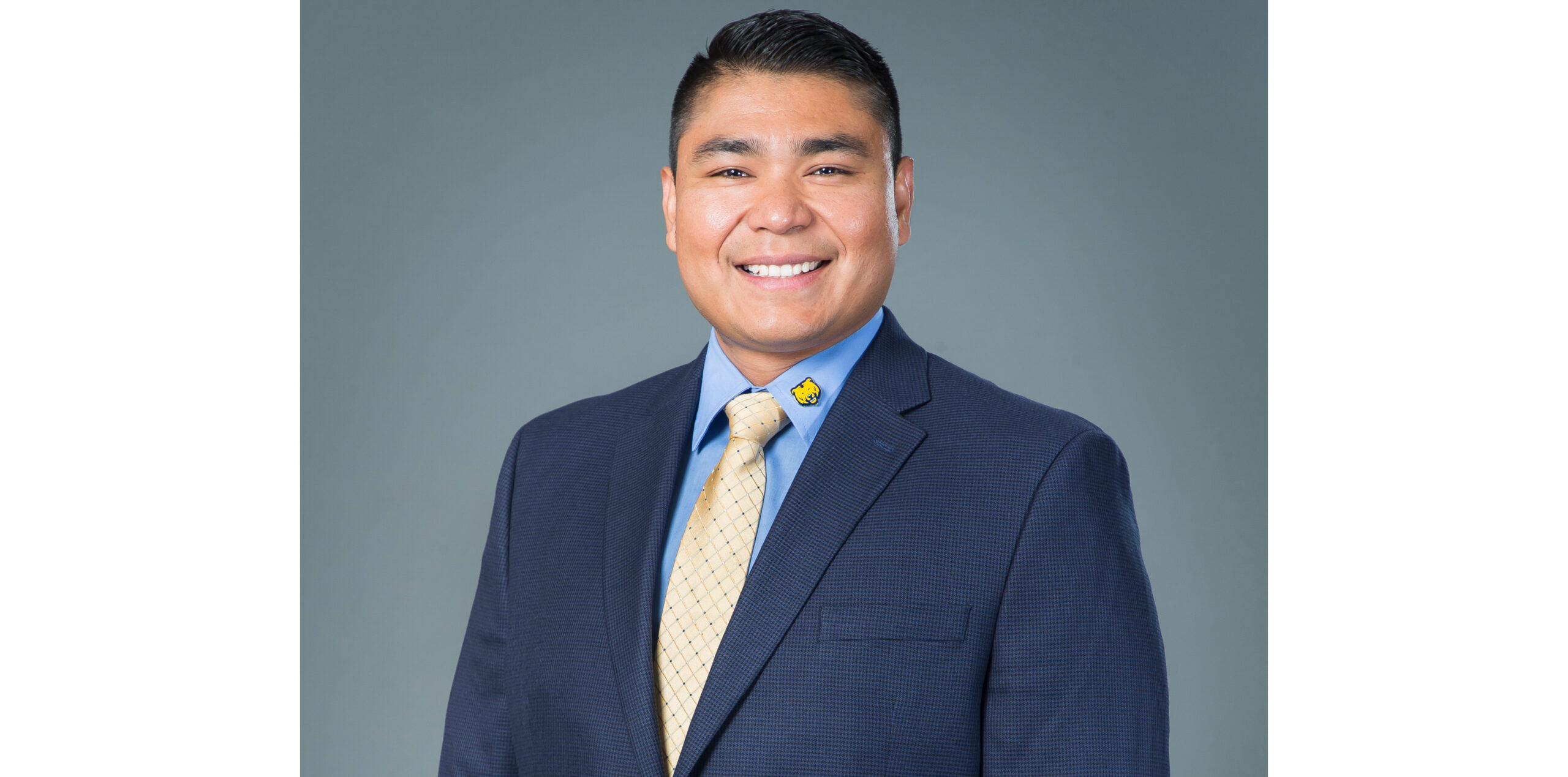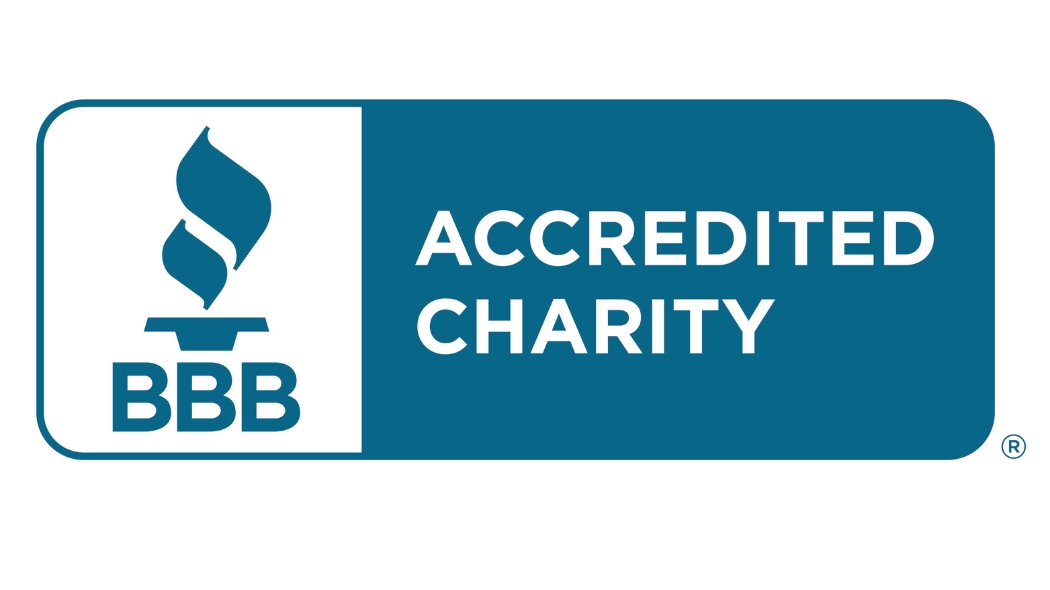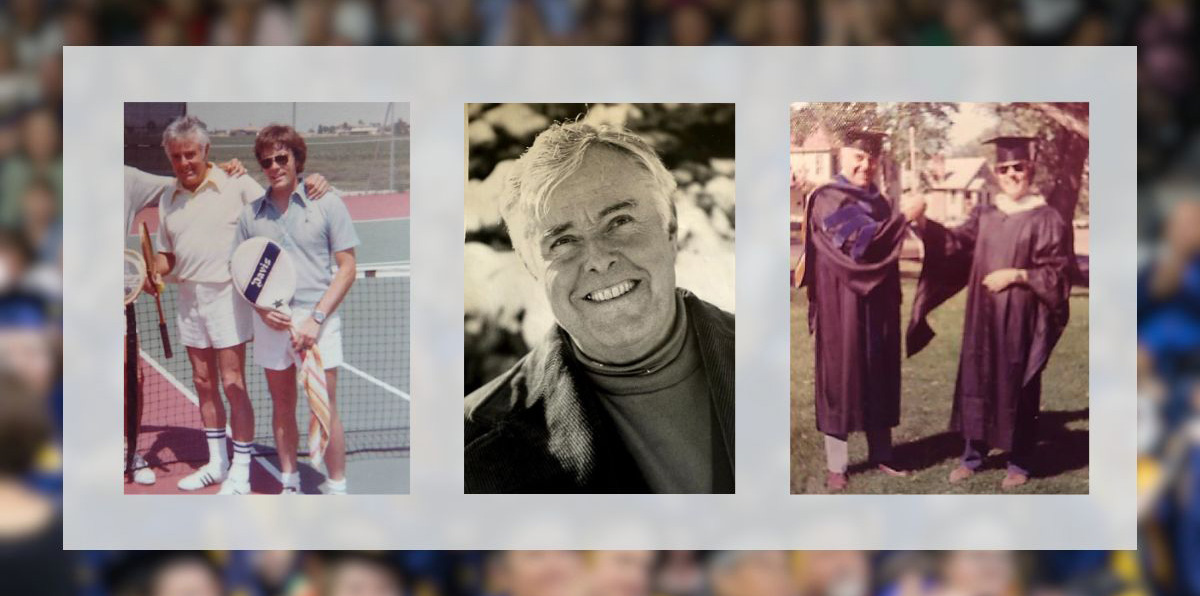
Article
July 12, 2022
New Director of César Chávez Cultural Center Rudy Vargas
UNC’s newly named director of the César Chávez Cultural Center shares the goal that drives him, the UNC experience that shaped him, the people who helped him along the way and his vision for the Center.
UNC’s newly named director of the César Chávez Cultural Center shares the goal that drives him, the UNC experience that shaped him, the people who helped him along the way and his vision for the Center.
Rodolfo (Rudy) Vargas ’13, ‘22, was born in Matamoros Coahuila, Mexico, and moved to the U.S. at the age of 12. He graduated from Greeley Central High School, then enrolled at UNC with plans to become a teacher. Those plans followed a different path, though, as he realized he wanted to help other students transition from high school to college – and from college to a successful career. Here’s how his UNC experience shaped him – and how he’s helping the students who’ve come after him.
Q: Did you know what you wanted to study when you came to UNC?
A: When I first started, I really wanted to be a teacher to be able to influence students’ lives, however, as I got more involved on campus with many organizations, including Nu Alpha Kappa Fraternity Inc., League of United Latin American Citizens (LULAC), Movimiento Estudiantil Chicanx de Aztlán (MEChA), the Mexican American Studies Club, and Sigma Delta Pi, I developed a passion for working in the community and supporting students as they pursued a college degree. I decided to drop my teaching major and graduated with a bachelor’s degree in Spanish and a minor in Teaching English as a Second Language (TESL).
Then in 2017, as I was working as a UNC admissions counselor, I traveled with the Native American Student Services staff to Gallup, N.M. to promote UNC among local high schools. During one of our lunches, I met Dr. Liz Gilbert, a professor in the Master of Public Health program at UNC through the Colorado School of Public Health. As I asked more questions about the program, I realized it was exactly what I was looking for – a program that would allow me to give back. I graduated with my MPH in 2022.
Q: How did your family feel about you graduating from UNC?
A: They’ve been extremely happy to have seen me graduate from UNC with both my bachelor’s and master’s. Both my parents did everything they could to fund my education, even though they were two immigrants with no English skills and no connections. They were really involved during my undergraduate experience helping my fraternity, Nu Alpha Kappa with many fundraisers and events we hosted. In 2012, my fraternity recognized them for all their support and help towards our efforts.
My parents have been instrumental in all my achievements, and they keep cheering me on in any of my professional endeavors.
Q: Were the faculty or staff who mentored you or made a difference for you?
A: I met Dr. Aldo Romero (director of Cumbres) at a high school event and since that day he’s become one of my biggest supporters. During college he would take the time to answer any questions my parents and I had. He’s continued to be one of my biggest mentors, even after I graduated from college. As an employee at UNC, Aldo still takes the time to meet with me multiple times per semester and provides guidance when I need it. I’m certain that my experience would have been completely different if Dr. Romero had not been there to support me.
And I met Dr. Tobias Guzmán (vice president, Division of Diversity, Equity and Inclusion) during a scholarship banquet my senior year of high school. Since day one, he made me feel so comfortable around him despite his many accolades. I will never forget scheduling a meeting with him during my junior year of college, and when I walked into his office, he had Ramón Ayala (famous Norteño music artist) playing in the background. That experience immediately made me feel like I belonged at UNC. Dr. Tobias also continues to provide me with guidance when needed.
Q: You’ve said your goal is to “be the person I needed when I was younger.” What are some of the ways you’re working on doing that?
A: As an English as a Second Language student in high school, I did not know how to navigate the college admissions process and consistently felt very lost. My family’s financial status didn’t allow us to pay for my education out-of-pocket, so we had to work very hard looking and applying for scholarships and other financial opportunities.
In the six different roles I have held at UNC, I’ve been able to be part of more than 25 committees advocating for our student population.
As a UNC admission counselor, I planned and hosted the first ever Éxito Latinx Admitted Student Trip, which has supported many Latinx students as they transition to college from high school, connecting them with resources even before they attend orientation. I’ve had the pleasure of seeing many of these students graduate in the last three years.
I’ve also led successful fundraising campaigns for our DREAMer scholarship for more than $20,000 in donations in the last three years and have obtained $28,000 in grants from the IME Becas Program Funded by the Mexican Consulate, and matching contributions from UNC to support undocumented students on their first year of college.
And I stay connected with our students – by having lunch with them, going on runs, and sometimes even over videogames – so I’m learning about their needs directly from them.
Q: When you talk with prospective students, what do you share with them about UNC?
A: The people set UNC apart. People here really care about you as a person, and they go above and beyond to support you during your college experience, no matter who you are or where you come from.
I often share that I never thought I could make it as far as I’ve made it, but UNC not only allowed me to dream, but it also provided with all the tools to make those dreams come true.
Q: How did the Center impact you as a student?
A: I spent a lot of time at the César Chávez Cultural Center as I worked for the Northern Colorado Upward Bound program housed there. It was one of the places where I always felt at home no matter who was there. The CCCC and their staff provided me and all my friends with a lot of support, and they often helped different organizations plan events and fundraise in support of Latinx populations.
Q: What are some of the things you hope to do as the Center’s director?
A: I want to exercise cultural humility with students to learn about their specific needs and be able to provide targeted support, and to make sure we continue to create an environment that is welcoming to all by taking into consideration student feedback with any major changes we make at the center.
I also hope to find more funding opportunities through grants or crowdfunding campaigns to be able to support Latinx and Undocumented students with scholarships and other financial opportunities.
And I’ll continue developing close relationships with our Chicana/o Latinx Studies Department and other departments at UNC, and with campus and community organizations, to be able to better support our students with their specific needs.
You can make a difference for UNC students. Support UNC’s DREAMer Scholarship or the César Chávez Cultural Center.



